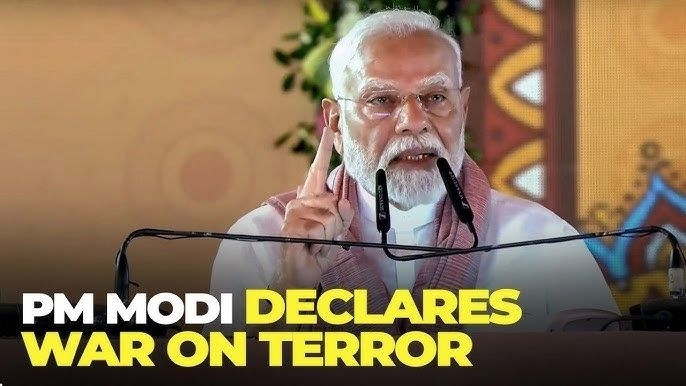Pro-Pakistan Activities Surge Across Bharat After Pahalgam Terror Attack
Why are Anti-National Elements Defending Pakistan’s Flag and Terrorism on Bharat"s Soil?
Total Views |

Just days after a horrific terror attack in Pahalgam, Jammu & Kashmir claimed the lives of 26 civilians, including one Nepali national, Bharat is witnessing a disturbing wave of events. The attack, claimed by the Islamic terror group Kashmir Resistance, suspected to be a Lashkar-e-Taiba front, has sparked widespread protests. But instead of uniting in grief and defiance, parts of the country have seen open support for Pakistan, triggering national outrage.
In Mumbai's Nalasopara, known for its large Muslim population and often referred to as "mini-Pakistan," Pakistani flags were shockingly displayed on April 27. This act, seen by many as an insult to the victims of Pahalgam, prompted peaceful protests by Hindu residents. Instead of allowing them to express their anger, they were met with violence. Eyewitnesses reported that Hindu locals were assaulted and threatened by Islamist groups defending the flag. This event has been widely condemned as a betrayal of Bharat’s sovereignty.
In Kalaburagi, Karnataka, Bajrang Dal activists organised a symbolic protest by placing Pakistani flags on roads, inviting people to walk over them in condemnation of the enemy nation. However, a group of burqa-clad women intervened and removed the flags. Heated exchanges followed, and instead of acting against those who removed the flags, police arrested six Bajrang Dal members for using foreign national symbols without permission. Hindu groups criticised this move, calling it political appeasement.
A Bajrang Dal leader expressed frustration, saying, "Why are those defending the flag of a terrorist nation being protected, while those protesting against terrorism are jailed? This is a betrayal of Bharat."
In Jaipur, Rajasthan, a similar controversy erupted when BJP MLA Balmukund Acharya and several Hindu activists were booked by police for pasting posters reading "Pakistan Murdabad" near Jama Masjid. This was part of spontaneous protests after the Pahalgam attack. Instead of supporting the protestors, the Congress-led state government filed an FIR, accusing them of inciting communal unrest.
Meanwhile, in West Bengal’s Ashoknagar, police prevented Hindu youths from raising anti-Pakistan slogans and burning Pakistani flags. The police claimed they acted to maintain communal harmony. However, critics allege that such actions show a worrying trend of prioritising political appeasement over patriotism. BJP spokesperson Amit Malviya called out the incident, sharing videos of police clamping down on peaceful protestors.
These events have sparked a fierce national debate. Many are questioning how waving the Pakistani flag or defending it in public is tolerated, while those protesting against terrorism are treated as criminals. On social media, hashtags like #JusticeForBajrangDal and #KalaburagiProtest are trending, with thousands demanding the release of arrested activists and strict action against those who disrupted protests.
Hindu organisations argue that the current state of affairs reflects a dangerous shift in national priorities. They point to repeated instances where Muslim groups, despite enjoying constitutional rights, have shown loyalty to Pakistan rather than to Bharat. From refusing to chant national slogans to running unregulated madrasas, these actions are seen as deliberate attempts to challenge the cultural fabric of the country.

In response, Prime Minister Narendra Modi has reaffirmed his commitment to rooting out terrorism and those who support it, directly or indirectly. Following the Pahalgam attack, Bharat suspended the Indus Waters Treaty, expelled Pakistan’s military attaché, and shut the Wagah border.
As the nation mourns its dead, there is growing demand for a clear and firm civilizational response. Protesters across Bharat are not just angry about Pakistan-sponsored terror but also about the domestic elements who sympathise with the enemy. For many, the writing is clear, Bharat must draw a strict line. Anyone using the freedoms granted by the Constitution to serve foreign interests or fuel division must face legal and constitutional consequences.
Unity, national pride, and the defence of Bharat’s sovereignty are not political issues, they are national duties. In times like these, silence or neutrality is no longer an option.


